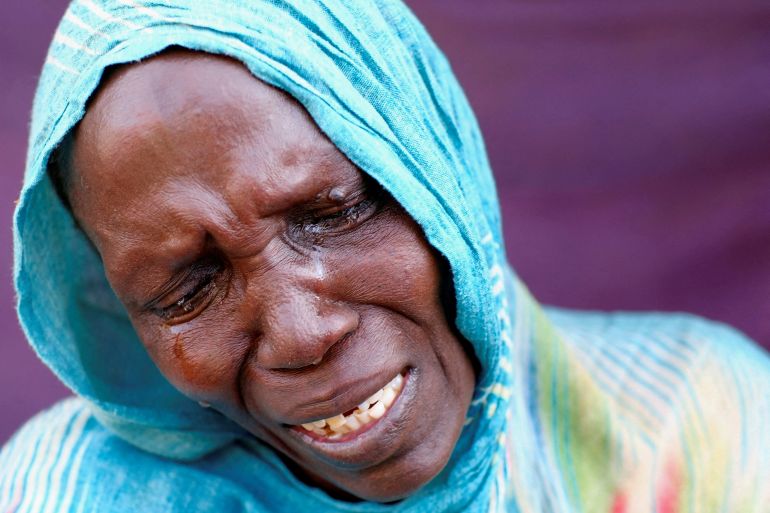The United Nations Human Rights Office has raised alarms over escalating violence in el-Fasher, Sudan, following the takeover of the city by the paramilitary Rapid Support Forces (RSF) on October 26, 2023. In a statement, Li Fung, the UN’s representative for human rights in Sudan, described the situation as “a city of grief,” reporting that “brutal attacks” against civilians have surged in the past ten days.
According to Fung, survivors of an 18-month siege are now facing “atrocities of an unimaginable scale.” She noted that hundreds have been killed, including women and children, while many sought refuge in hospitals and schools. “Entire families were cut down as they fled. Others have simply vanished,” she stated in a video message shared on social media platform X.
The warning from the UN comes amid reports from aid organizations indicating that thousands of people fleeing el-Fasher now face dire conditions in the nearby town of Tawila. Adam Rojal, spokesperson for the Sudan’s Internally Displaced Persons (IDPs) and Refugee Camps aid group, revealed that more than 16,000 individuals have arrived in Tawila, many in urgent need of food, medical care, and shelter. Video footage provided by Rojal’s organization shows displaced families living in barren areas with insufficient tents, many improvised from patched tarps and sheets.
The humanitarian crisis escalates as Doctors Without Borders (MSF) reported “extremely high levels of malnutrition among children and adults.” Mathilde Vu, advocacy manager for the Norwegian Refugee Council (NRC), noted that many families arriving in Tawila include “children who are not their own,” highlighting the tragic circumstances faced by those who have lost parents during their flight.
El-Fasher, previously home to approximately 260,000 residents, is now a focal point of violence following the RSF’s takeover. A report from the Yale University Humanitarian Research Lab on October 28 revealed evidence of “mass killings,” with satellite imagery showing apparent pools of blood in the city. The International Organization for Migration estimates that around 82,000 people have fled el-Fasher and surrounding areas, seeking refuge in Tawila, Kebkabiya, Melit, and Kutum.
UN Human Rights Chief Volker Turk has expressed concern for civilians still trapped in el-Fasher, stating that they are being prevented from leaving. He warned that “abominable atrocities such as summary executions, rape, and ethnically motivated violence” may be ongoing within the city.
Conflict Spreads to Kordofan Region
As the humanitarian situation in Darfur deteriorates, the conflict has extended into the neighboring Kordofan region. Early this week, a drone attack in el-Obeid, the capital of North Kordofan, resulted in at least 40 fatalities and numerous injuries. A military official confirmed that the army intercepted two Chinese-made drones targeting the city.
The RSF’s recent capture of Bara, approximately 60 kilometers north of el-Obeid, has heightened fears of an assault on the capital. According to the UN, this has already prompted more than 36,000 people to flee the area. El-Obeid is strategically located on a vital supply route linking Darfur to Khartoum, which is roughly 400 kilometers away. Its capture would represent a significant gain for the RSF, which has been engaged in conflict with Sudan’s army since April 2023.
Ceasefire Efforts and Humanitarian Crisis
The conflict has claimed at least 40,000 lives, according to the World Health Organization, with aid groups suggesting the actual death toll could be significantly higher. Despite the ongoing violence, a ceasefire proposal has been put forth by the Quad — a coalition of international mediators including Egypt, Saudi Arabia, the United Arab Emirates, and the United States.
The RSF has expressed a willingness to consider the ceasefire, which aims to establish a three-month humanitarian pause, followed by a permanent ceasefire that would facilitate a political transition to civilian governance. Nevertheless, the Sudanese government, primarily backed by the army, has not publicly responded to the proposal. On X, Darfur Governor Minni Arko Minnawi asserted that any ceasefire lacking provisions for the RSF’s withdrawal would risk the division of Sudan.
The fall of el-Fasher has effectively placed the RSF in control of all five state capitals in the western region, solidifying a de facto division of the nation. As the situation continues to unfold, the international community watches closely, aware that the humanitarian crisis in Sudan is reaching unprecedented levels.







